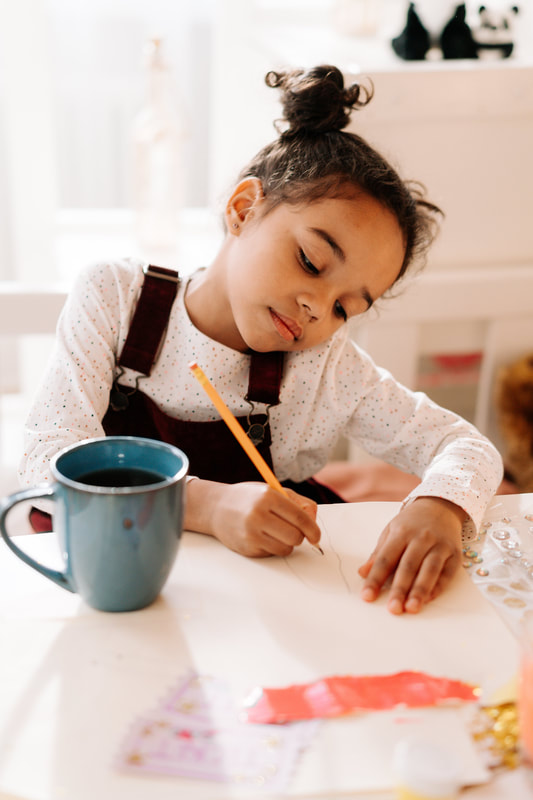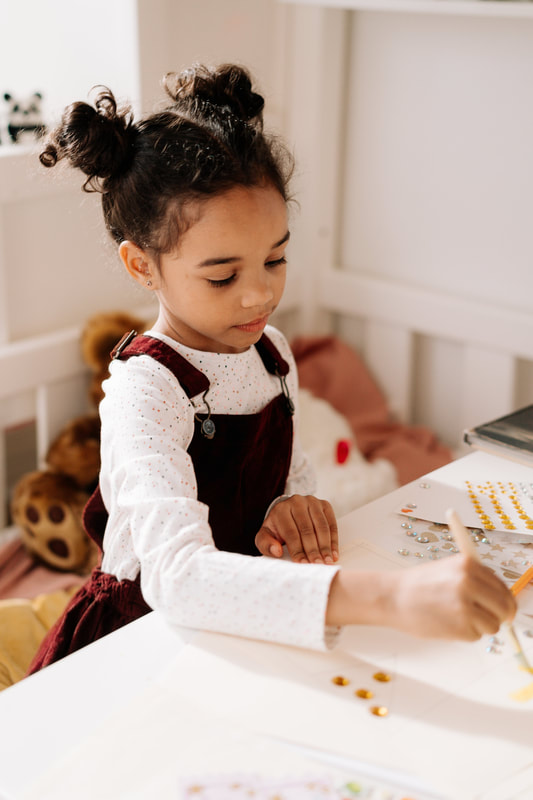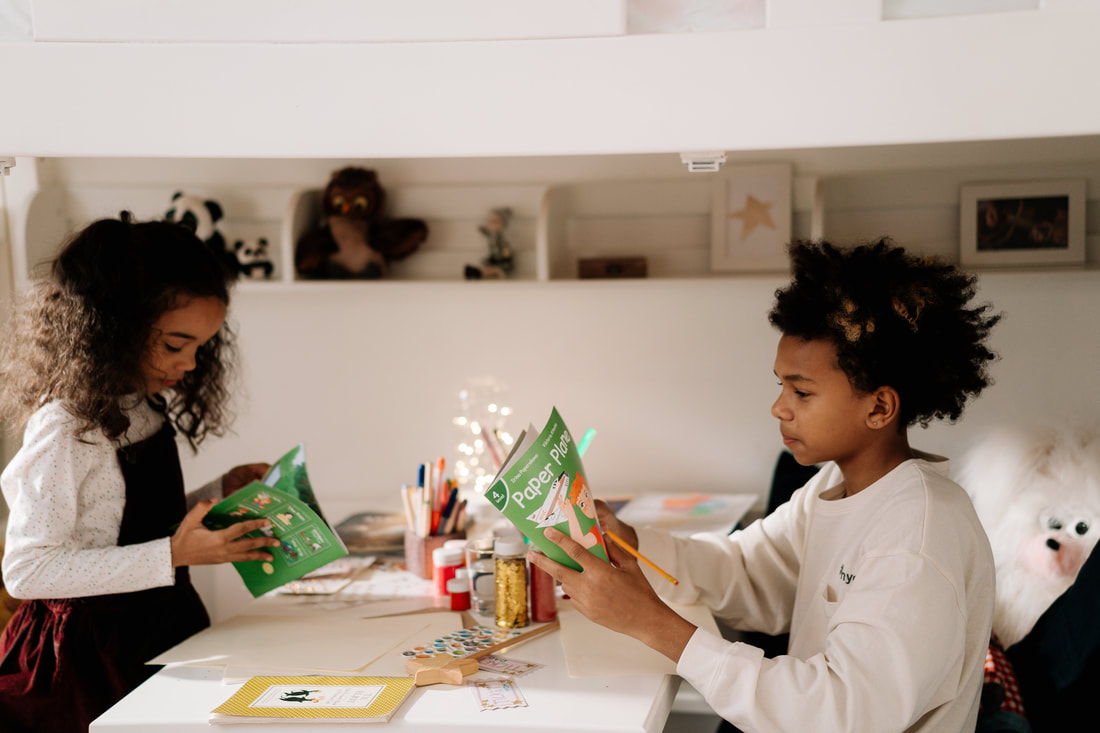Unlocking Potential: How to Foster Independence and Creativity with a Montessori Home Environment
|
The principles of Montessori education can be extended beyond the classroom and integrated into the home environment to support children's learning and development. Creating a Montessori-friendly home environment involves thoughtful consideration of the physical space, the selection of age-appropriate materials, and the cultivation of independence and autonomy.
In a Montessori-friendly home, emphasis is placed on providing children with opportunities for self-directed exploration and learning. This may involve creating designated spaces for activities such as art, practical life skills, and quiet reading, allowing children to engage in activities that align with their interests and developmental stage. The selection of toys and materials in a Montessori home is guided by principles of simplicity, functionality, and purpose. Open-ended, natural materials that encourage creativity and imagination are favored over plastic, single-purpose toys. Additionally, involving children in the care and maintenance of their environment, such as setting the table or watering plants, promotes a sense of responsibility and contributes to their sense of belonging within the home. |
Encouraging independence in daily routines, such as dressing, meal preparation, and tidying up, empowers children to take an active role in caring for themselves and their surroundings. This autonomy fosters a sense of competence and self-efficacy, laying the groundwork for positive self-esteem and confidence.
While Montessori education is distinct in its approach, many of its principles and practices can be integrated into daily routine of our everyday life. By embracing elements of the Montessori philosophy, parents can create the right environment which will foster independence, critical thinking, and a love for learning within home as well.
One way to integrate Montessori principles by providing opportunities at home which will involve the child to develop choice, exploration, and hands-on experiences. Thie will allow him/her to take ownership of their learning and engage more deeply with the curriculum. This approach encourages intrinsic motivation and a sense of agency in them.
Another key aspect of Montessori education that can be integrated is the emphasis on multi-sensory learning. Incorporating tactile, kinesthetic, and visual learning experiences allows kids to engage with wooden toys and play equipments at home with diverse ways, catering to different learning styles and promoting a deeper understanding of concepts.
While Montessori education is distinct in its approach, many of its principles and practices can be integrated into daily routine of our everyday life. By embracing elements of the Montessori philosophy, parents can create the right environment which will foster independence, critical thinking, and a love for learning within home as well.
One way to integrate Montessori principles by providing opportunities at home which will involve the child to develop choice, exploration, and hands-on experiences. Thie will allow him/her to take ownership of their learning and engage more deeply with the curriculum. This approach encourages intrinsic motivation and a sense of agency in them.
Another key aspect of Montessori education that can be integrated is the emphasis on multi-sensory learning. Incorporating tactile, kinesthetic, and visual learning experiences allows kids to engage with wooden toys and play equipments at home with diverse ways, catering to different learning styles and promoting a deeper understanding of concepts.
|
The role of the prepared environment at home can inclucde: creating organized, purposeful learning spaces that facilitate independent exploration and discovery. Thoughtfully selecting and arranging materials that align with the philosophy will encourages active engagement and promote a sense of ownership over learning.
Montessori education is designed to cater to the developmental needs of children at various stages of early childhood, from infancy through the early elementary years. Each stage of Montessori education builds upon the foundational principles of independence, self-directed learning, and respect for the child's individuality. So a home can be an extension of the same philosopy as what they are exposed at school or any learning environment. As children transition into the toddler stage, the Montessori environment continues to prioritize sensorial experiences, practical life skills, and language development. Toddlers should be provided with opportunities for independent exploration, self-care, and social interaction, laying the groundwork for future academic and social-emotional growth. |
In the early childhood years, the Montessori philosophy expands to encompass a broad range of academic subjects, including mathematics, language, cultural studies, and practical life skills. Children engage in purposeful work with materials and toysa whcih will develop foundational skills in areas such as reading, writing, numeracy, and scientific exploration. The emphasis on an individual child at home allows them to explore at there own pace with hands-on learning experience.
Montessori educational philosophy represents a profound shift in the way we approach education by placing the child at the center of the learning experience and embracing the richness of individuality. By honoring each child's unique developmental journey, Montessori education fosters a deep love for learning, cultivates essential life skills, and nurtures the whole child – academically, socially, emotionally, and physically. With our modern day life and overwhelming encrochment of our time and mind with digital media and gadgets, it is one of the most essential times whene we need to embrace this alternative and progressive way of education to prepare future thinkers.
Montessori educational philosophy represents a profound shift in the way we approach education by placing the child at the center of the learning experience and embracing the richness of individuality. By honoring each child's unique developmental journey, Montessori education fosters a deep love for learning, cultivates essential life skills, and nurtures the whole child – academically, socially, emotionally, and physically. With our modern day life and overwhelming encrochment of our time and mind with digital media and gadgets, it is one of the most essential times whene we need to embrace this alternative and progressive way of education to prepare future thinkers.
As we reflect on the principles and practices of Montessori education, it becomes clear that this approach holds the potential to shape bright, well-rounded individuals who are equipped to navigate the complexities of the future with confidence, resilience, and a deep sense of purpose. Embracing the holistic approach of Montessori education is not just a paradigm shift; it's a transformative journey that empowers children to thrive as lifelong learners and empathetic, contributing members of society.
In embracing the principles of Montessori education, we open doors to a world where education becomes a personalized adventure of growth, empowerment, and the joyful pursuit of knowledge.
In embracing the principles of Montessori education, we open doors to a world where education becomes a personalized adventure of growth, empowerment, and the joyful pursuit of knowledge.


